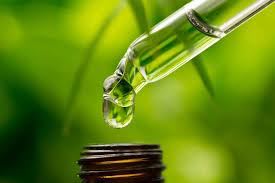Poison Centers have seen an increase across all ages for Cannabidiol (CBD) cases since 2014. Cannabidiol is a compound extracted from hemp or marijuana plants that typically does not get users “high.” CBD is different than tetrahydrocannabinol (THC), another compound in cannabis plants, that does cause users to get high or have serious side effects. As multiple states across the country legalize CBD, companies are now adding it to food, drinks, bath products, and other household goods.
However, there is growing concern with some of these products. For example, some products contain more CBD than what is on the label, more THC than labeled, or other chemical compounds/drug ingredients that are not listed at all. Consumers have no way of knowing whether the product is contaminated with other chemicals and drugs or labeled correctly. The FDA has issued several warning letters to companies marketing products that allegedly contain CBD. In addition, it is important to note that the U.S. Drug Enforcement Administration (DEA) classifies all products containing CBD that are not the FDA-approved Epidiolex as Schedule I, the most restrictive category of the Controlled Substances Act.
As of February 29, 2024, Poison Centers have managed 425 cases related to cannabidiol in 2024.

FOR THE MEDIA:Please cite this data as “National Poison Data System, America's Poison Centers.” Any and all print, digital, social, or visual media using this data must include the following: “You can reach your local Poison Center by calling the Poison Help line: 1-800-222-1222. To save the number in your mobile phone, text POISON to 301-597-7137.” Email media@PoisonCenters.org or call 703-894-1863 for more information, questions, or to submit request data.
| |
SAFETY TIPS:
-
Be sure to store CBD products out of reach of children and call the Poison Help line at 1-800-222-1222 immediately if they come in contact.
-
Never consume more than the recommended amount.
-
Call the Poison Help line at 1-800-222-1222 immediately if you have any adverse reactions.
|
/APC%20logo_2C%20with%20tagline.jpg)
 CANNABIDIOL (CBD)
CANNABIDIOL (CBD)